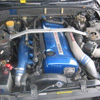The Dead Turbo Thread.
Announcements
-
Similar Content
-
Latest Posts
-
I confirmed cylinder is TDC. harmonic balanced is old but rubber looks good. Night before last I took the balancer off and used the crank mark to confirm timing. Plugs are brand new bkr6e at 1.1ish
-
Also, have you confirmed the harmonic balancers timing mark is correct? Put it to TDC and then check the cylinder is actually at TDC. The balancer looks old as, and may have started to let go. How old are the plugs in it? What spark plugs are in it, and what gap are they at?
-
Make up a wire you can energize the starter solenoid from when in the engine bay. Then energize it with the key in the "On" position, and use your timing light.
-










Recommended Posts
Create an account or sign in to comment
You need to be a member in order to leave a comment
Create an account
Sign up for a new account in our community. It's easy!
Register a new accountSign in
Already have an account? Sign in here.
Sign In Now